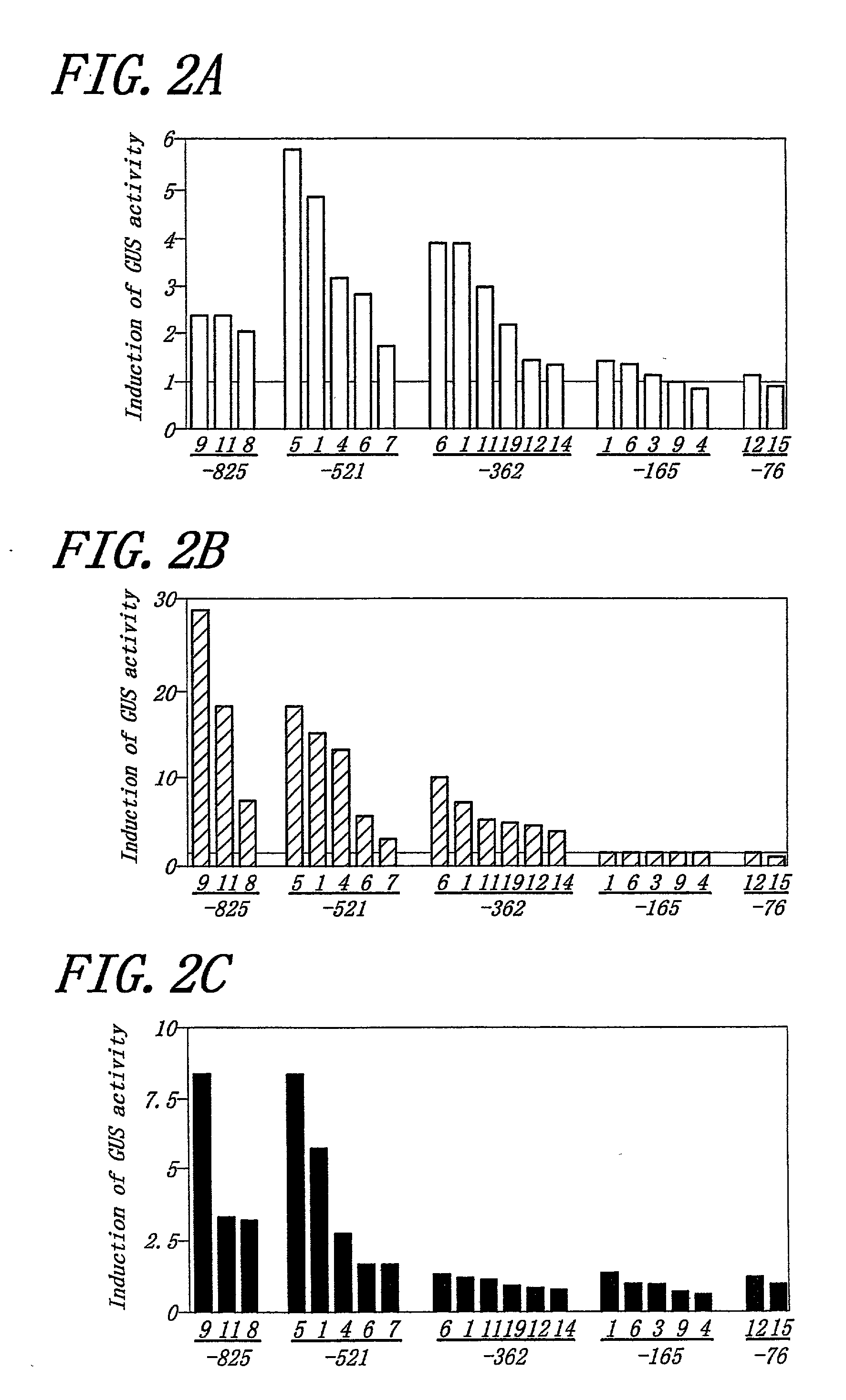Element inducible in response to injury, a promoter inducible in response to injury and a transgenic plant
a technology of inducible elements and promoters, applied in the field of inducible elements, to achieve the effect of improving the resistance against injury
- Summary
- Abstract
- Description
- Claims
- Application Information
AI Technical Summary
Benefits of technology
Problems solved by technology
Method used
Image
Examples
Embodiment Construction
[0024] The base sequence of FAD7 promoter region derived from Arabidopsis thaliana was already published by Nishiuchi et al (Nishiuchi et al. (1995) "Plant Mol. Biol" 29:599-609). The base sequence of the promoter region is shown in a sequence list 1 described below and FIG. 1.
[0025] Parts of the promoter sequence were deleted to provide elements. The parts were selected from 5' upstream to each predetermined nucleotide number in a stepwise manner, as described below. Each element was ligated with a GUS gene of plasmid binary vector PbI101.1 (Clonetech) to provide each construct, which was incorporated into tobacco SR1 strain using leafdisc method mediated by agrobacterium (LBA4404) (Horsch et al. (1985) Science 227:1229-1231). Each reporter (GUS) activity of the R1 generation was measured.
[0026] FIG. 2 shows the experimental results performed on A: blade, B: stalk and C: root. Each tobacco was planted in soil and cultivated for 3 months at 26.degree. C. under continuous light illum...
PUM
 Login to View More
Login to View More Abstract
Description
Claims
Application Information
 Login to View More
Login to View More - R&D
- Intellectual Property
- Life Sciences
- Materials
- Tech Scout
- Unparalleled Data Quality
- Higher Quality Content
- 60% Fewer Hallucinations
Browse by: Latest US Patents, China's latest patents, Technical Efficacy Thesaurus, Application Domain, Technology Topic, Popular Technical Reports.
© 2025 PatSnap. All rights reserved.Legal|Privacy policy|Modern Slavery Act Transparency Statement|Sitemap|About US| Contact US: help@patsnap.com


